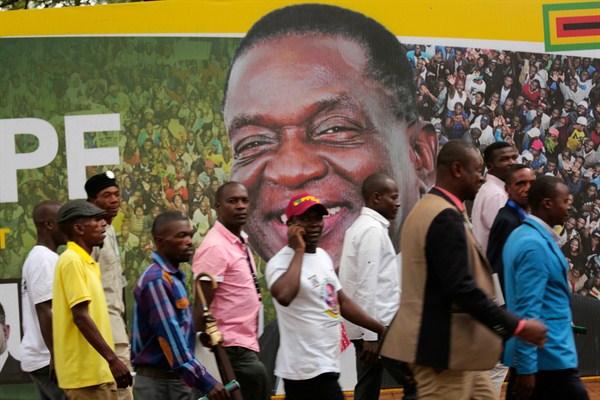Editor’s Note: Every Friday, WPR Senior Editor Robbie Corey-Boulet curates the top news and analysis from and about the African continent.
A year ago, Zimbabwe’s president, Emmerson Mnangagwa, was riding high as he traveled to Davos, Switzerland, to declare at the World Economic Forum that his country was “open for business.” It was a message he had delivered many times since coming to power in November 2017, after longtime President Robert Mugabe was forced out in a military intervention, and would continue to deliver at seemingly every opportunity. As Alex T. Magaisa, a Zimbabwean analyst, put it last year, the new president’s appearance in Davos was “symbolic of the generous goodwill that Mnangagwa is enjoying in his early days in office.”
In a sign that this goodwill has persisted, Mnangagwa was invited back to Davos this week. In the end, however, he was unable to make it. On Sunday, he announced on Twitter that he was cutting short a foreign trip to return to Harare to address an economic crisis that has fueled deadly clashes between protesters and security forces. The violence, which began last week, demonstrates how Mnangagwa’s failure to deliver on his economic promises, something we’ve covered previously in Africa Watch, could trigger widespread instability.
So far, more than 12 people have been killed in the latest unrest, according to rights groups, and more than 600 have been arrested. The government has tried to shut down the internet, only to be overruled by the High Court. Still, the crackdown has the potential to extend beyond street protesters to target all government critics. “The headquarters of the country’s main opposition party was torched,” Michelle Gavin and Alexander Noyes wrote Tuesday in an op-ed for The Washington Post. “Activists have reported that security services in some areas have gone from house to house, breaking in and beating the occupants.” Some soldiers conducting these house-to-house raids have allegedly raped women in the process.

